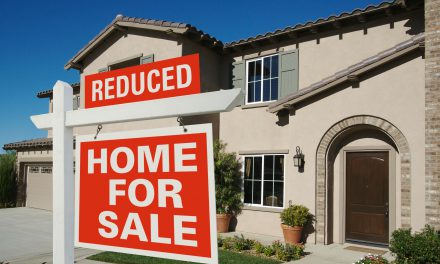Do you recommend the SBA - 504 to your commercial real estate buyers?
- Yes (48%, 13 Votes)
- What in the world is the SBA - 504? (30%, 8 Votes)
- No (22%, 6 Votes)
Total Voters: 27
The Small Business Administration (SBA) has proposed significant changes to its loan program. Will the changes facilitate more borrowing and should business owners in the market for real estate look to the SBA?
A primer on SBA loans
Before any business can grow, it must first obtain capital, whether by issuing stock or borrowing. This is the perennial struggle of all small business owners. It is often difficult for small businesses to obtain needed capital by borrowing from commercial lenders due to their limited assets and often substantial risk of default.
Lenders are unwilling to make loans to smaller businesses during economic downturns. Thus, the SBA provides a government guarantee to encourage commercial lenders to make small business loans. SBA loans provide much-needed liquidity to small businesses during economic downturns.
The relationship between the business entity (corporation, LLC, LP), the owner(s) of the entity, the SBA and the lender is key to SBA loans. An SBA loan is never made to an individual — it is always made to an entity, namely the business applying for the loan. Thus, one would expect the shelter provided by a business entity to protect the associated individuals (primary investors in the business) from liability in case of default.
However, since the loan is made to a business and not an individual, lenders insist that business owners sign a personal guarantee for the SBA loan. This personal guarantee forces the business owners to put their personal assets on the line in the event of default. Even when the commercial lender making an SBA loan holds the senior lien on assets (read: real estate) purchased with the loan funds, lenders choose to first make a demand on the business owner to pay off the company’s loan under the guarantee provisions. If it is not paid off, the lender attaches the business owner’s personal assets in pursuit of full satisfaction of the loan.
Related article:
Changes to come
To make their loans more attractive to small business owners, the SBA has proposed relaxing its:
- affiliation rules; and
- personal resources test.
The affiliation rules were designed to ensure that a small business was actually small. Many so-called small businesses are in fact backed by big time investors with substantial capital resources looking to get the benefits of a government-guaranteed loan. The proposed changes would essentially expand the SBA’s definition of “small business” to include bigger players in need of a loan.
The personal resources test is in the same vein. The SBA was previously very strict about forcing investors with deep pockets to put their skin in the game before qualifying for an SBA loan. Under this proposed change the SBA would not require a personal capital injection as part of the qualifying process.
Of course, all of this is moot if the budget cuts resulting from the sequester are allowed to occur. If Congress doesn’t roll back the cuts soon, the amount of loans the SBA is able to guarantee will likely decrease by nearly $900 million.
Related article:
“S.B.A. Proposes Rule Changes to Lure Borrowers” from the New York Times
The “small business” of real estate
Although small business and real estate are intimately linked in all sorts of ways, we are interested in these changes specifically due to the SBA – 504 loan. The 504 loan enables small business owners to purchase fixed assets (such as real estate) with their small business loan. This means the SBA – 504 loan may be viewed as a catalyst for a still credit-crunched real estate market.
But here’s why you ought to be very wary of the 504: the SBA requires that qualifying applicants back 100% of the loan using the purchased real estate, other business assets and all their personal assets via the personal guarantee discussed above. This means a business owner’s personal savings and checking accounts will be attached in the event of default – before the lender starts foreclosure on the real estate.
The path to recovery is paved with good intentions
The SBA’s heart is in the right place. They are, in fact, attempting to do what government does best — act as the lender of last resort.
The effort to make the SBA loan more attractive to commercial lenders and business owners is an effort to set a virtuous economic cycle in motion. As more loans are made, more workers are hired, more equipment is purchased and more real estate is sold or leased. As a direct result, more tax revenues are generated and the consumer economy begins to churn again.
Unfortunately, the SBA – 504 loan does not jibe with encouraging growth in a struggling economy. Worse, its guarantees do not make financial sense for real estate deals. A loan to purchase real estate ought to be solely secured by the real estate itself, as is the case with our modern mortgage and trust deed system. All purchase-assist home loans are government guaranteed with extremely few exceptions, and no personal liability exists for any of them.
Rather than allowing big business more opportunities for government guarantees (think automotive companies), the SBA needs to rethink its collateral requirements for SBA – 504 loans. If they were structured more like a traditional trust deed real estate loan, more small business owners might be inclined to use them to buy real estate.
As it stands right now, no savvy business owner is going to risk their childrens’ college funds to buy extra space — and the SBA should not require it!














